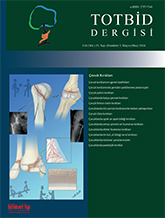
Pediatric shoulder injuries and humeral fractures should be evaluated differently from those seen in adults. The high remodeling potential of immature bone provides successful results with conservative methods in the treatment of most fractures, but surgical treatment may be required in cases such as open fractures, neurovascular injuries and deformity that exceeds the acceptance criteria. Care should be taken about complications such as dysphagia, dyspnea, brachiocephalic vein compression in sternoclavicular dislocations; brachial plexus injury in clavicle fractures and radial nerve damage in humerus shaft fractures that can be mortal. Physical injuries can also be seen in the pediatric population, unlike adults. In addition, patients with pediatric shoulder girdle and humeral fractures are more prone to non-accidental injury and children should be evaluated for abuse.